8 Things You Should Never Flush Down Your Toilet
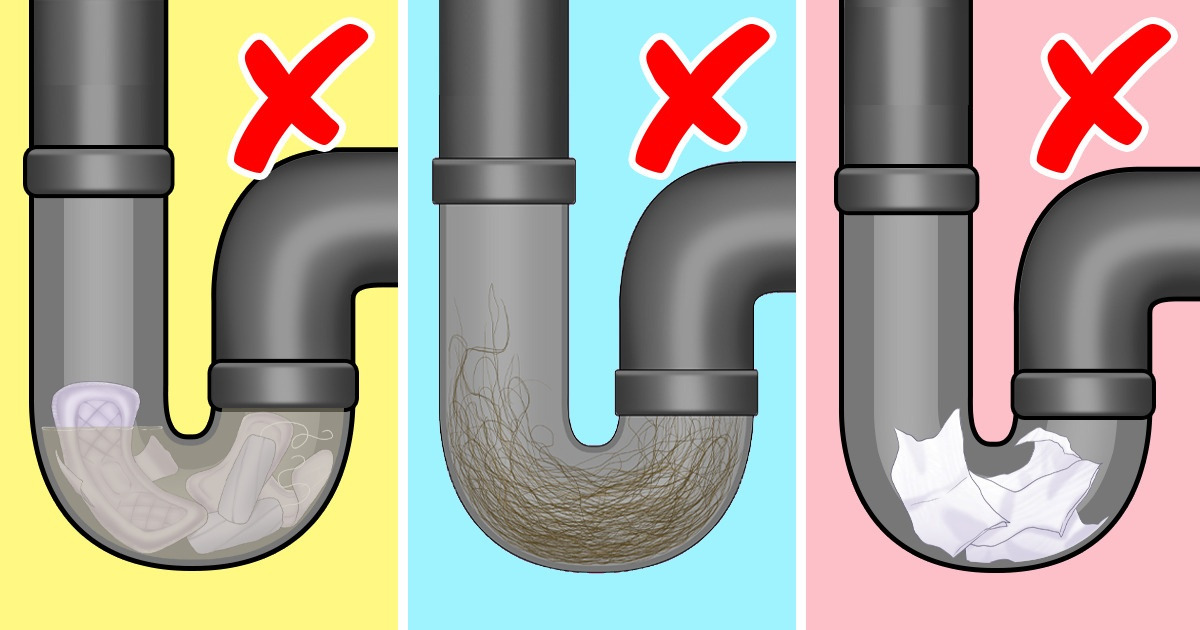
Ideally, nothing should get into your toilet apart from toilet paper, pee, and poo. However, oftentimes people use it as a garbage bin, flushing down everything that, for some reason was unfit for a regular trash bin. It can become the reason for the unpleasant smells in the lavatory and even toilet clogs.
5-Minute Crafts is telling you what things shouldn’t be flushed down the toilet if you want to avoid clogging your toilet.
1. Paper towels
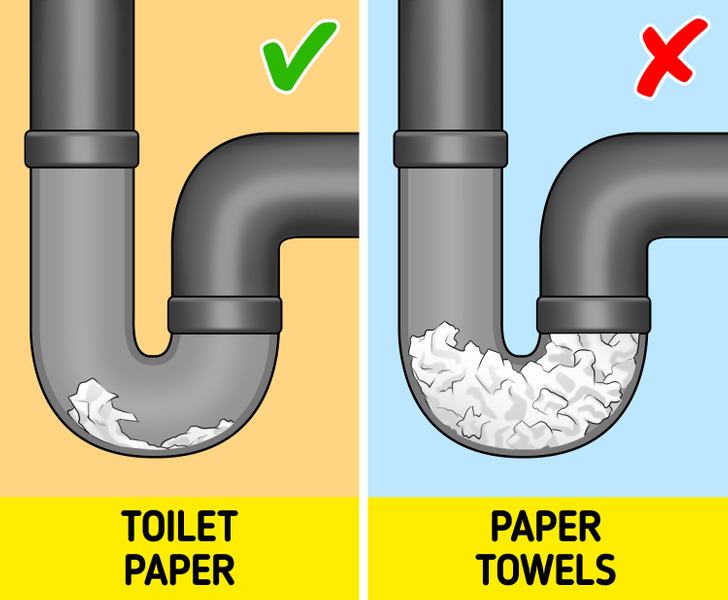
Paper towels look and feel like toilet paper. But, in fact, they are much denser, which makes them hard to decompose in the sewer system. Instead of flushing them down the toilet, it’s best to put a trash bin next to the bathroom and throw paper towels there.
2. Wet wipes
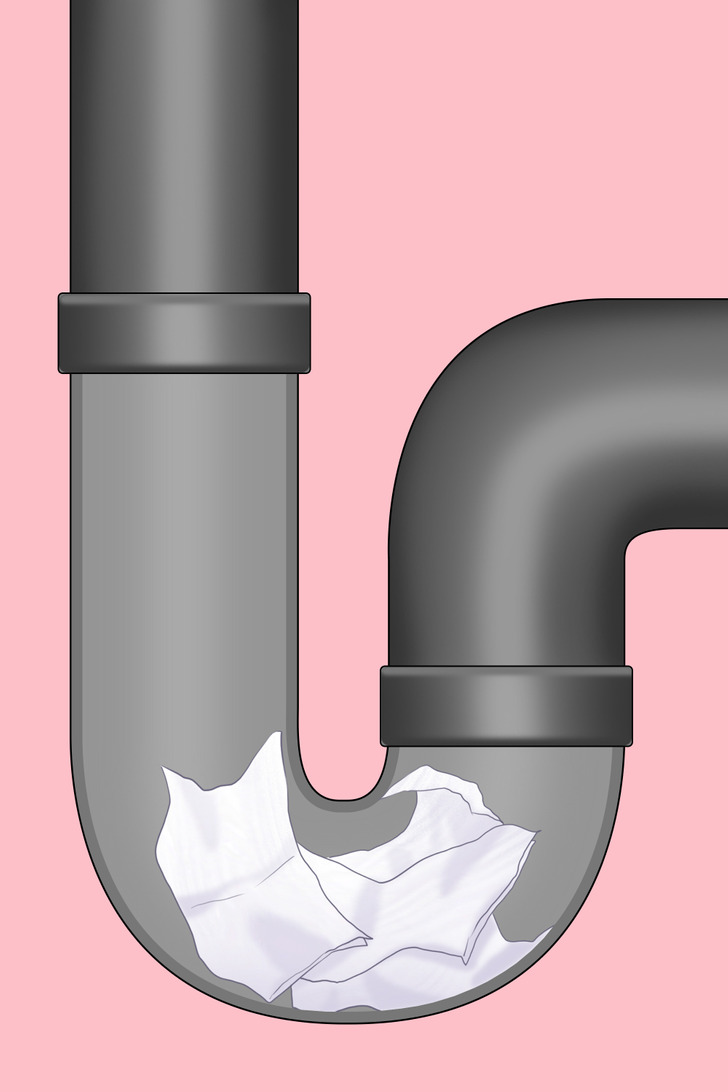
While paper towels are difficult to decompose in the sewer, wet wipes don’t dissolve there at all. Because of this, they cause large blockages and negatively affect the wastewater treatment process. Therefore, it is better not to flush wet wipes down the toilet, but rather, throw them into the nearest trash can.
3. Cooking grease and oil
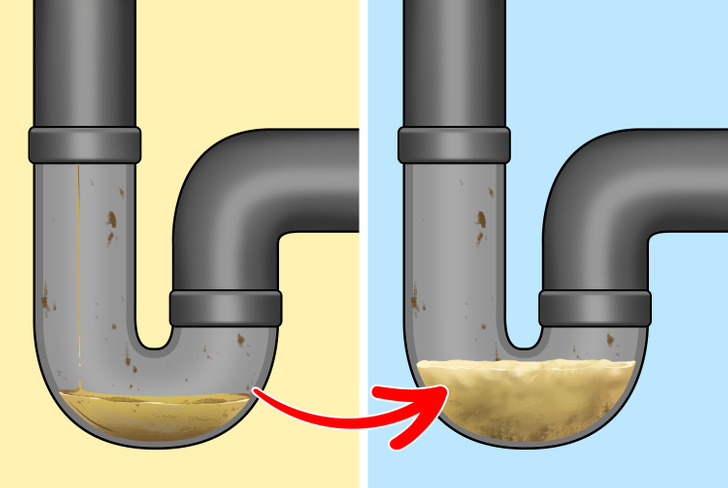
Some cooking oils and fats harden at low temperatures and can cause large sewer clogs. To avoid this, it is best not to flush any leftovers from the frying pan down the toilet. Instead:
- Carefully remove grease and other food leftovers from the surface of the pan.
- Place them in a disposable container, like a paper cup.
- Close the container with a disposable lid or wrap it in a layer of paper.
- Throw the container into a trash bin.
4. Medicine, paint, and chemical solvents
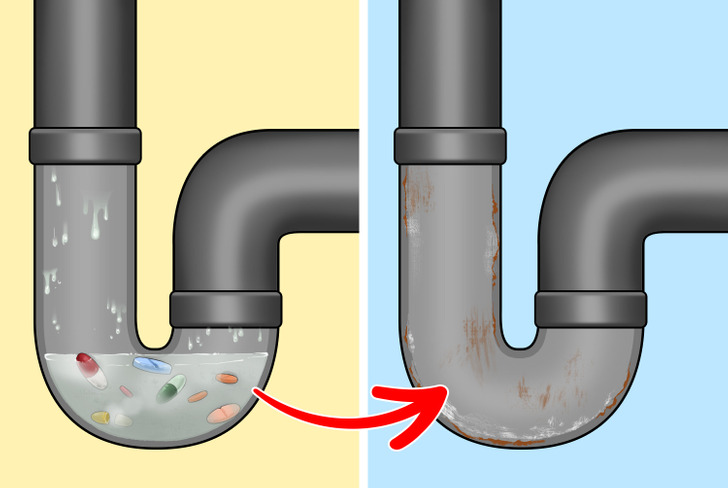
Some substances are toxic and can lead to the chemical contamination of wastewater. These include drugs, paint, chemical solvents, antifreeze, transmission fluid, and other substances.
It’s especially worth mentioning bleach: this can corrode and damage pipes in your home. In addition, bleach can have a reaction with other substances in the plumbing system, creating and releasing toxic fumes.
These substances can all be disposed of in a safe way. For example, chemicals like paint ought to be brought to a specialized center that recycles hazardous waste in your city. You can ask car service workers where to take used car oil, for example. Expired and unused medicine can be taken to the nearest drugstore where they will be disposed of according to the rules.
5. Sanitary napkins, tampons, and diapers
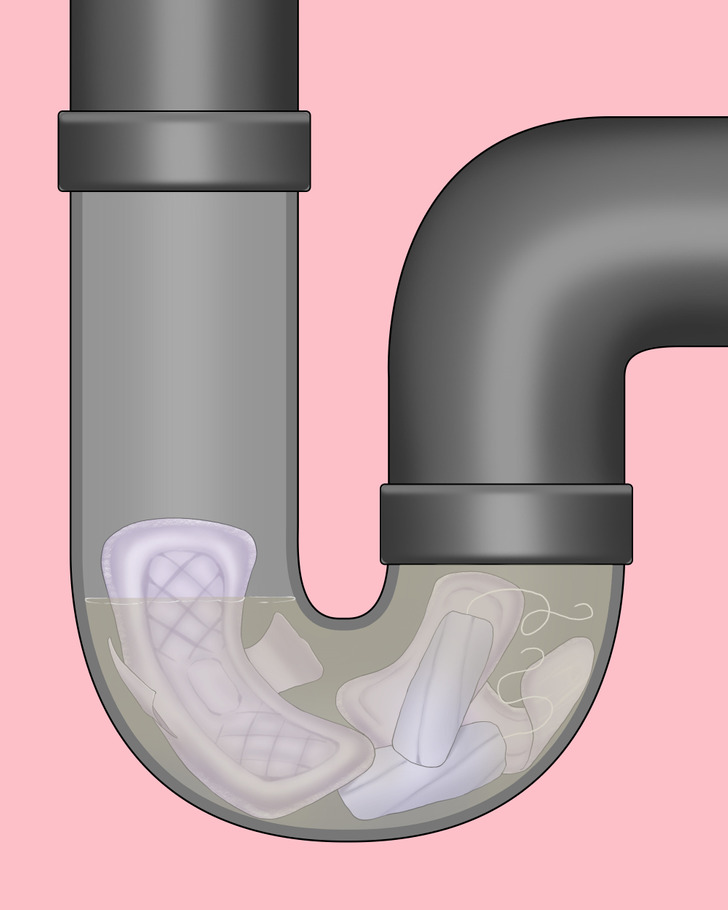
The disposal of individual hygiene items has always been an issue for women. But it’s also an issue for water pipes because used tampons and pads can block pipes and clog the toilet very quickly.
Instead, wrap used tampons or pads in toilet paper, put them into a small hygienic bag, and throw them into a trash bin. Dispose of kids’ diapers the same way.
6. Cat litter
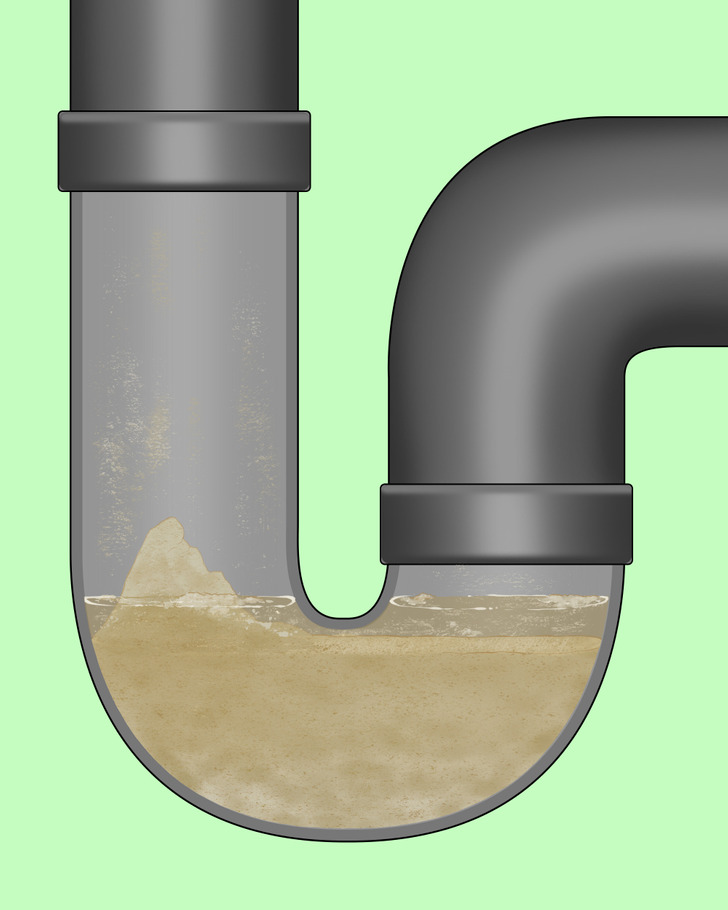
One shouldn’t flush cat litter down the toilet, as it can lead to a blockage. But it’s not just the litter that’s dangerous, but also the cat waste that the litter is mixed with.
The thing is, cat waste can contain Toxoplasma gondii, a parasite that can lead to infection and that affects humans with compromised immune systems. Since many wastewater treatment plants cannot cope with these pollutants, the discharge of a source of parasites into wastewater poses a threat to public health.
The used cat litter should be placed in a small bag and disposed of by throwing it into a trash container.
7. Hair
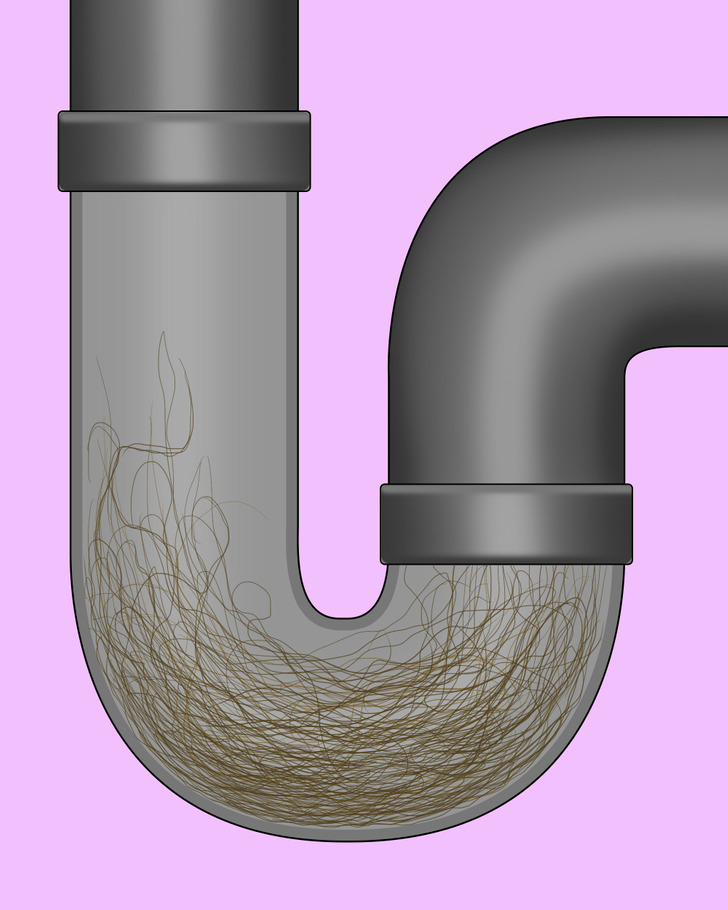
The fact that hair can be considered an organic substance doesn’t mean it doesn’t harm the sewer system. When passing through pipes, hair can get tangled and form giant balls that create mass blockages and become a reason for unpleasant odors. That’s why it’s better not to flush hair left on your brush down the toilet. Instead, make sure to throw it into the trash bin. The same thing applies to dental floss.
8. Food scraps
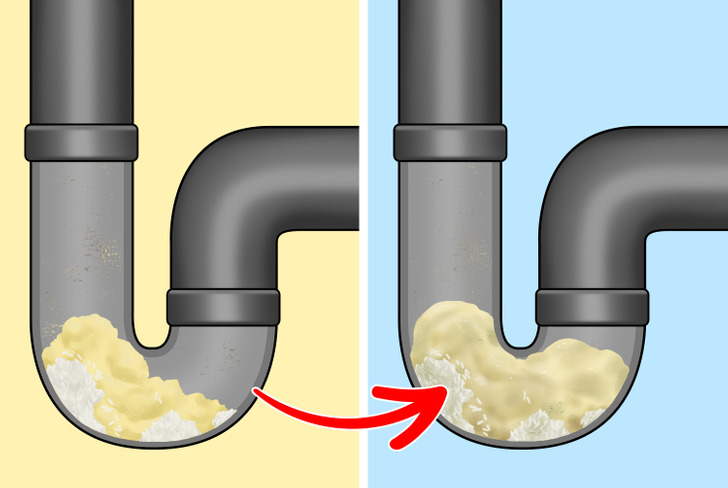
Just like hair, food scraps can be considered organic substances. That’s why we oftentimes flush them down the toilet without giving it a second thought. But this really isn’t a good idea.
Large pieces of food can block a section of the pipe and cause a blockage at the very least. However, products that are harmless at first glance are actually dangerous for the sewage system (like, for instance, starchy foods such as rice or mashed potatoes). When starch combines with water, it turns into a sticky gel that is difficult to move further. As a result, the pipes get clogged, which, again, becomes the cause of a blockage.
Instead of flushing food scraps down the toilet, it’s better to throw them into a trash container or dispose of them with the help of a special food grinder that is installed into the kitchen wastewater system.
Tell us in the comments how you usually dispose of food waste.